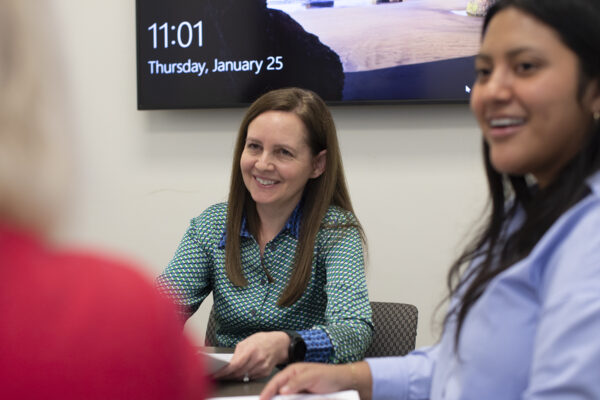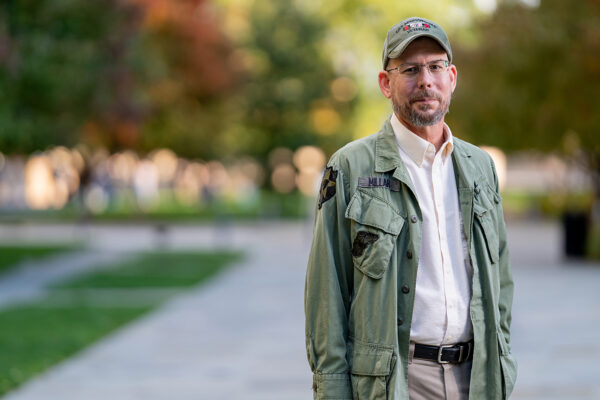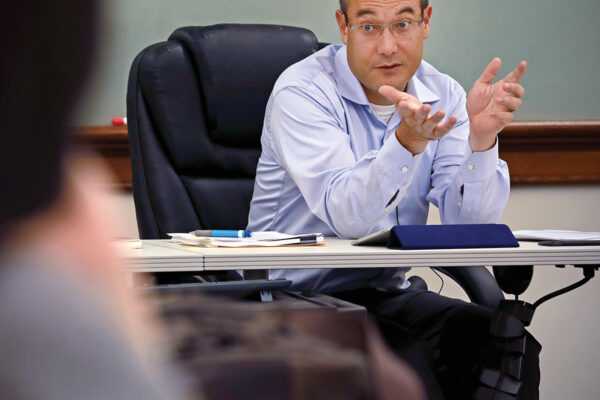The School of Law at Washington University in St. Louis will recognize this Veterans Day with the grand opening of its new Veterans Law Clinic.
Through the clinic, law students can assist low- and moderate-income veterans in such matters as requesting upgrades of their discharge characterization and correction of military records. These updates not only fix errors in the veterans’ records but also make them eligible for more benefits and support systems such as health care through the Department of Veterans Affairs.
“While there are many services available to the veteran population, our leadership team recognized that there was a dearth of legal services available,” said Cormac Smith, director of the Veterans Law Clinic, an assistant professor of practice and a veteran who served for more than 20 years as an officer in the U.S. Army. “As we continue to develop our clinic, we hope to tailor it to address the needs of this population.”
The grand opening event will take place at 5:30 p.m. Monday, Nov. 11, in Anheuser-Busch Hall.
The clinic’s initial goal is to educate students while also providing free legal services to veterans.
“Our job is to educate law students and prepare them to be competent and successful attorneys,” Smith said. “Classes are critical for the bedrock knowledge expected of law school graduates, but client-forward clinics like ours enable the students to work with clients and their real-world cases. Clinical students get a head start on core attorney skills such as advising clients, interviewing witnesses, conducting legal research and drafting pleadings.
“Our second mission is to provide free legal services to the veteran community we assist. It is thus a win-win: students gain experience and veteran clients receive great legal representation at no cost.”
Sarah Narkiewicz, associate dean for clinical education at the law school, said the clinic aims to fill a need in the St. Louis region.
“There are so many potential legal issues that can arise in the veterans’ community,” Narkiewicz said. “We also believe that this is an incredible opportunity for students to make a real difference in the community with their legal skills.”
Smith said the clinic hopes to educate students in an area of law that they might not otherwise study.
“Some students in the clinic are veterans or have family members who have served, but many do not have any exposure to the military,” he said. “Regardless of their familiarity with the military, the clinic provides students with a baseline understanding of who qualifies for federal veteran benefits based upon their characterization of service and, importantly, the available remedies for an adverse characterization.”
Veterans seeking representation for pursuing a discharge upgrade, military records correction, or submission/appeal with the Department of Veterans Affairs are encouraged to reach out to Smith at cormacs@wustl.edu.
For more about the law school’s clinical education program and a full list of clinics, visit the School of Law website.


